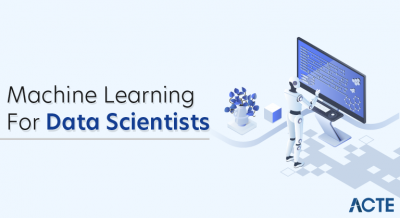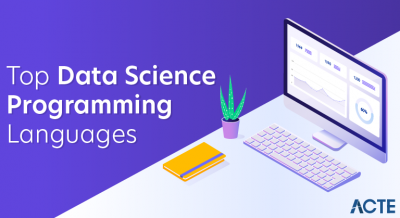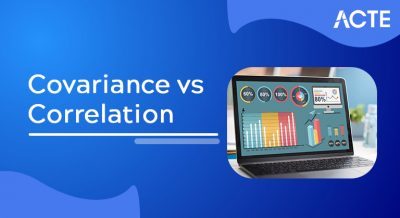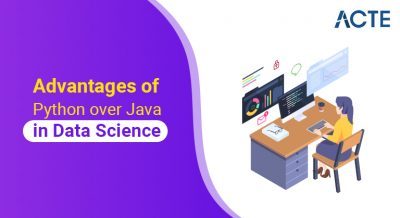
- Overview of Data Science Job Market
- In-Demand Job Roles in Data Science
- Skills Required for Data Science Jobs
- Tools and Technologies Used in Data Science
- Salary Trends and Packages
- Job Responsibilities of Data Scientists
- Top Companies Hiring Data Scientists
- Freelance and Remote Data Science Opportunities
Overview of the Data Science Job Market
The Data Science job market has been rapidly evolving, driven by the increasing volume of data being generated across industries, and the growing need for organizations to harness this data for business insights, decision-making, and innovations. The demand for data scientists has soared as businesses increasingly realize the value of data in optimizing operations, enhancing customer experiences, and gaining a competitive edge. Over the past decade, Data Science Training has become essential as data science has emerged as one of the most sought-after career paths, with demand spanning diverse sectors from tech to healthcare, finance, retail, and government. The rise of machine learning, artificial intelligence (AI), and big data analytics has led to an expansion of data science job roles in various fields. Organizations today are not only looking for data scientists but also for machine learning engineers, data engineers, AI specialists, and business intelligence professionals. The job market is expected to continue expanding as new technologies and trends, such as automation, AI-driven analytics, and cloud computing, further enhance the significance of data science in business operations.
Are You Interested in Learning More About Data Science? Sign Up For Our Data Science Course Training Today!
In-Demand Job Roles in Data Science
The field of Data Science offers a wide range of career opportunities, each requiring a distinct set of skills and expertise. Among the most sought-after roles is that of a Data Scientist, who analyzes large datasets, builds predictive models, and applies statistical methods to extract meaningful insights requiring strong skills in programming, mathematics, and data visualization. A Data Analyst, on the other hand, focuses on interpreting historical data to uncover trends and patterns using Top Data Science Programming Languages and tools such as Excel, SQL, and Tableau to produce insightful reports and dashboards. Machine Learning Engineers work closely with data scientists to develop and deploy machine learning models, transforming prototypes into scalable, production-ready systems.
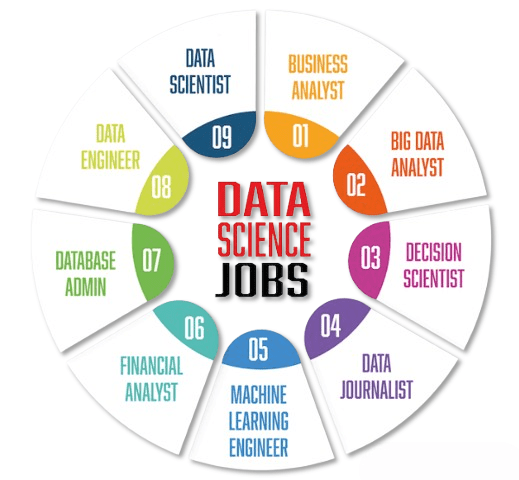
Business Intelligence (BI) Analysts play a key role in helping organizations make data-driven decisions by analyzing business data and delivering actionable insights aligned with business objectives. AI Specialists concentrate on implementing artificial intelligence and machine learning techniques to develop intelligent, automated systems. Data Architects design the frameworks and structures for efficient data storage and retrieval, while Quantitative Analysts (Quants), primarily in the finance sector, use mathematical models to forecast market trends and assess risks.
Skills Required for Data Science Jobs
- Programming Languages: Proficiency in programming languages such as Python, R, SQL, and Java is crucial for data manipulation, analysis, and building algorithms.
- Mathematics and Statistics: Strong knowledge of mathematics, including linear algebra, calculus, and probability theory, is essential for understanding algorithms and building models.
- Machine Learning: Understanding machine learning algorithms, such as regression, classification, clustering, decision trees, and deep learning, is key to building predictive models and solving complex problems.
- Data Wrangling: A Day in the Life of a Data Scientist involves being proficient in cleaning, transforming, and preparing data for analysis, which requires familiarity with data wrangling libraries like Pandas and NumPy.
- Data Visualization: Proficiency in data visualization tools and libraries, such as Matplotlib, Seaborn, Tableau, or Power BI, is necessary to communicate data findings clearly and effectively to stakeholders.
- Big Data Technologies: Knowledge of big data tools and platforms like Hadoop, Spark, and Apache Kafka is essential for processing large datasets and building scalable data pipelines.
- Cloud Computing: As more organizations shift to the cloud, familiarity with cloud platforms such as AWS, Google Cloud, and Microsoft Azure is increasingly important for deploying models and managing data infrastructure.
- Domain Expertise: Understanding the specific industry in which you work (e.g., healthcare, finance, retail) can significantly enhance your ability to interpret data and provide actionable insights.
- Python: Python is one of the most popular programming languages for data analysis, machine learning, and scientific computing.
- R: R is another powerful language for statistical computing and data visualization. It is particularly popular in academia and research and is used in statistical analysis, data visualization, and bioinformatics.
- SQL: Data Science Training emphasizes SQL as a fundamental tool for querying databases, making it essential for data wrangling and analysis.
- Tableau and Power BI: These are data visualization tools widely used in business intelligence to create interactive reports and dashboards.
- Hadoop and Spark: These big data technologies are used for processing large datasets across distributed computing environments.
- TensorFlow and Keras: These frameworks are used in building machine learning and deep learning models, particularly in areas like natural language processing and image recognition.
- Git: Version control tools like Git are essential for collaboration and managing code repositories.
- Jupyter Notebooks: Jupyter Notebooks allow data scientists to write and execute code in an interactive environment, often used for data exploration and sharing results.
- Data Collection: Gathering and acquiring data from different sources such as databases, APIs, web scraping, and third-party services.
- Data Cleaning and Preprocessing: Removing inconsistencies, handling missing data, and transforming data into a format suitable for analysis.
- Exploratory Data Analysis (EDA): Analyzing data to uncover patterns, correlations, and trends through statistical analysis and visualizations.
- Model Development: Building predictive models using machine learning algorithms and statistical techniques often involves performing tests like the Normality Test in Minitab.
- Model Evaluation: Testing and validating models to ensure they perform accurately and efficiently, often through cross-validation and performance metrics.
- Data Visualization and Reporting: Creating reports, dashboards, and visualizations to communicate insights and findings to stakeholders.
- Collaboration: Working closely with other teams such as business analysts, engineers, and executives to translate business problems into data-driven solutions.
To Explore Data Science in Depth, Check Out Our Comprehensive Data Science Course Training To Gain Insights From Our Experts!
Tools and Technologies Used in Data Science
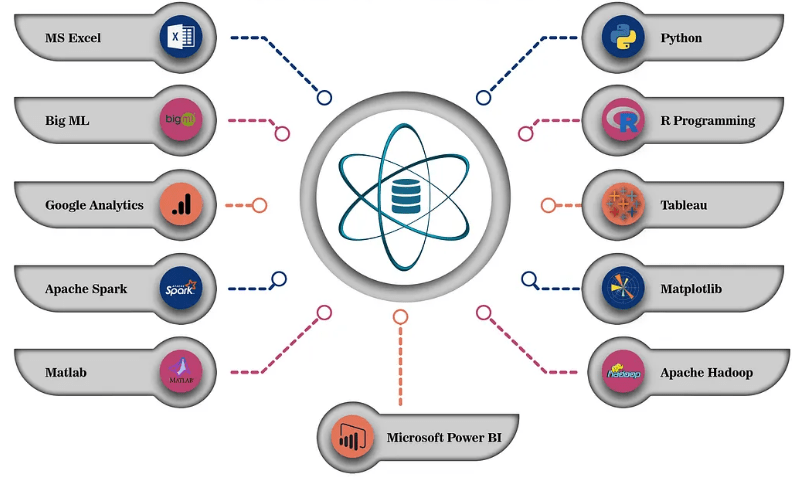
Salary Trends and Packages
Data Science continues to be one of the most rewarding and high-paying career fields globally. The demand for skilled professionals has led to competitive salary packages across various roles and experience levels. Entry-level data science professionals, such as data analysts or junior data scientists, can expect an average annual salary ranging from $60,000 to $90,000, depending on the country, company, and skillset. As professionals gain experience, mid-level data scientists and machine learning engineers typically earn between $100,000 and $130,000 per year. Reasons You Should Learn R, Python, & Hadoop include qualifying for senior-level positions such as data architects, lead data scientists, and AI specialists, which often command salaries upwards of $150,000, with additional benefits and performance bonuses. In sectors like finance, healthcare, and tech, these figures can be significantly higher due to the value placed on data-driven decision-making. Freelance and consulting opportunities also offer high earning potential, especially for professionals with niche expertise. Geography also plays a crucial role salaries in the U.S., Canada, and parts of Europe tend to be higher than those in developing countries, although remote work has begun to narrow this gap. As organizations continue to prioritize data insights, the upward trend in data science compensation is expected to persist in the coming years.
Are You Considering Pursuing a Master’s Degree in Data Science? Enroll in the Data Science Masters Course Today!
Job Responsibilities of Data Scientists
Top Companies Hiring Data Scientists
With the growing importance of data-driven decision-making, many top companies across industries are actively hiring data scientists to gain a competitive edge. Tech giants like Google, Amazon, Microsoft, Apple, and Meta consistently recruit data science professionals to work on everything from search algorithms to user personalization and AI product development. These companies offer some of the most attractive compensation packages and opportunities to work on cutting-edge projects. In the financial sector, the Role of Citizen Data Scientists in Today’s Business is evident as firms like JPMorgan Chase, Goldman Sachs, and Citibank hire data scientists to analyze market trends, manage risks, and develop predictive models. Healthcare and pharmaceutical companies such as Pfizer, Johnson & Johnson, and UnitedHealth Group use data science to advance medical research, improve patient care, and optimize operations. Retail leaders like Walmart and Target also rely heavily on data scientists for customer analytics, inventory management, and supply chain optimization. Additionally, consulting firms such as Deloitte, Accenture, and McKinsey & Company hire data scientists to support clients across various domains. Startups and unicorn companies in AI, fintech, and e-commerce are also major employers, offering dynamic roles and innovation-driven work environments. This widespread demand makes data science a versatile and highly sought-after career across sectors.
Want to Learn About Data Science? Explore Our Data Science Interview Questions & Answer Featuring the Most Frequently Asked Questions in Job Interviews.
Freelance and Remote Data Science Opportunities
With the rise of remote work and the expansion of the gig economy, data scientists now have more flexibility than ever to choose when and where they work. Freelance data science roles are gaining popularity, offering professionals the opportunity to collaborate with clients across industries from finance and healthcare to marketing and e-commerce without being tied to a single employer or location. This model allows data scientists to gain exposure to a variety of projects, build a diverse portfolio, and sharpen their skills in real-world scenarios. Platforms like Upwork, Freelancer, and Toptal have become key resources for connecting skilled data professionals with businesses seeking temporary or project-based support. Freelancers may work on tasks such as data analysis, machine learning model development, data visualization, and business intelligence reporting. In addition to flexibility, freelance work can also offer competitive pay, especially for those with niche expertise or strong reputations. Remote full-time roles are also becoming more common, with many companies adopting hybrid or fully remote models. This growing trend opens up global opportunities, enabling data scientists to work with international teams and organizations without relocating.


